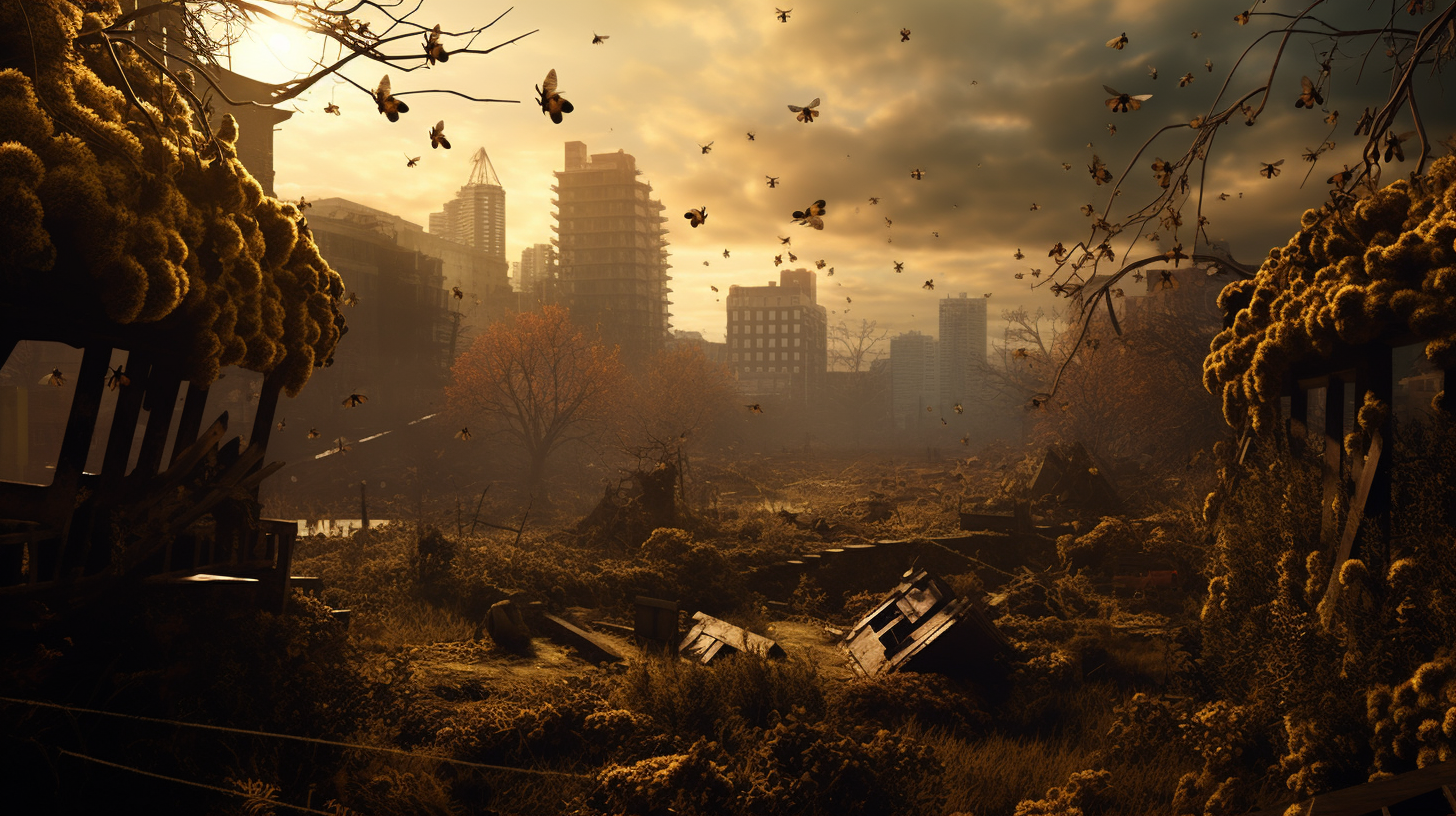In an unsettling symphony of the ecological collapse, the steady buzz of bees — once the quintessential anthem of fertile landscapes — has grown perilously faint. Across the sprawling monocultures and vandalised natural habitats, bees and their fellow pollinators are nearing vanishment. Yet, in an uncanny twist of fate, the concrete mazes of our own urban dwellings may offer a glimmer of refuge in these dystopian times.
Studies reveal an ironic flip: as the countryside becomes a pesticide-ridden wasteland for these essential insects, cities are seeing a bizarre uptick in bee populations. Rooftop gardens, urban beehives and floral roundabouts have unwittingly become the de facto sanctuaries of what we’ve left of the natural world. These pockets of wildflowers and verdure are fewer and far between but are now humming with life that is scarcely found ‘in the wild’.
This anomalous trend begs the question: can we truly consider our cities the new nature havens, the ark if you will, as more traditional ecosystems falter and fail? And what does it say about our society that Nature finds solace in the heart of the metropolis we’ve so tirelessly forged over her? The answers are complex and layered, much like the intricate dance of the bees themselves.
With an investigative lens, one might look upon this situation as humanity’s desperate preservation attempt — or indeed, as a haunting last stand. Some urban environmentalists argue that these unusual bee havens are just patchwork solutions. “The idea that concrete jungles could replace the lush gardens of the Earth is not just preposterous; it’s dangerous,” one prominent figure voiced, a stark reminder that no man-made landscape could ever truly substitute for the sophistication of natural ecosystems.
Amidst the accidental urban apiaries, debates flare: Are we at the point of no return? For some ecological realists, the notion of salvaging a world that’s already past saving is met with skepticism. “Transforming cities into bug sanctuaries is an act of desperation, a token gesture that changes nothing on the grand scale,” another critic added, punctuating the sentiment with a mix of resignation and scorn.
And yet, what are we to do in the face of this desolate reality? Should we embrace the cities as the biodiverse strongholds they’re becoming — by necessity if not by choice? Should architects, planners, and citizens put their combined effort into turning metropolitan areas into a network of life-supporting oases?
As we ponder these questions, the air grows eerily silent where the bees buzzed just a decade ago. In their absence, we find a haunting reminder that the health of our planet and the creatures that call it home is precariously hanging by a thread — and it is up to us to pick up the loose ends or resign ourselves to the notion that no renewal awaits us at the end of this grim chapter.
In truth, the plight of the bees and the unexpected rise of urban ecology present a complex narrative, fraught with moral quandaries and practical stumbling blocks. It is a captivating, yet bittersweet tale of resilience amid negligence, a possible chapter in the chronicles of an Earth struggling to right itself after being tipped off balance by the very inhabitants it sustains.
The transformation of our cities to bolster what’s left of nature is a concept rife with challenges. Yet, embracing the paradox of urban refuges and valuing every scrap of biodiversity as precious may be our only course of action should we wish to gaze upon the intricately woven labyrinth of life in the future. When bees retreat, perhaps the cities are not so much taking over as they are reluctantly taking up the mantle — a mantle we’ve otherwise discarded.
In this thought piece, we delve into these murky waters, offering no easy absolution but instead, shining a stark light on the world we’ve shaped and the nascent one that is struggling to emerge. The answers we seek may not be found within the confines of this text, nor may they be fully realized in our lifetime. But it is imperative we confront them with the gravity they deserve: as our last stand, as our only stand.
